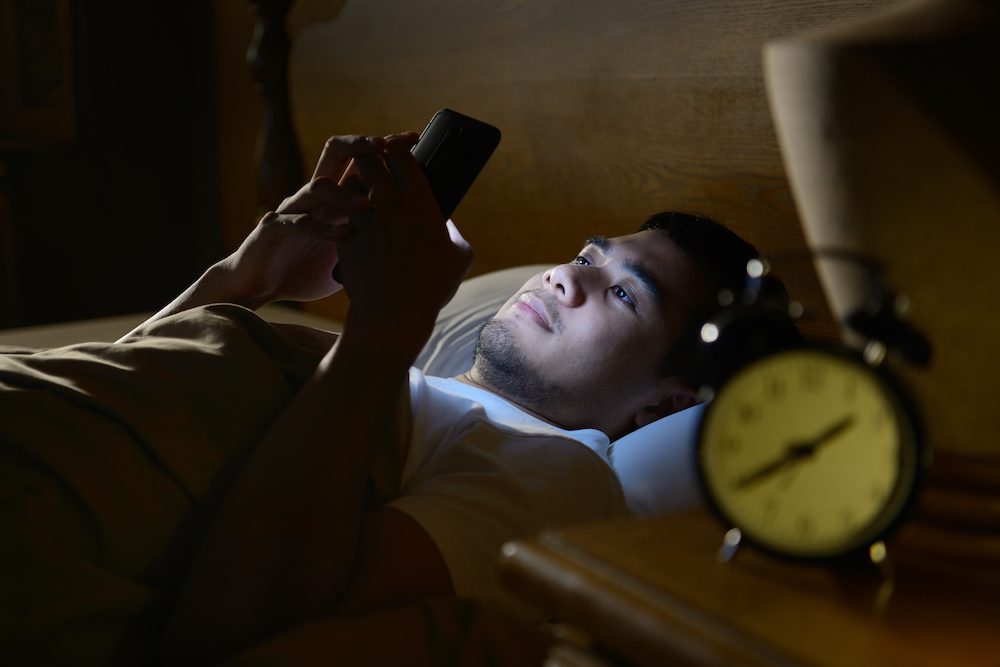The wrong room temperature, whether too hot or too cold, can make getting adequate sleep difficult. We explore what research says about temperature and sleep, including the ideal air temperature for sleep, how body temperature changes in relation to the sleep cycle, and how to maintain the optimal sleeping temperature.
Experts suggest an air temperature between about 65 and 68 degrees Fahrenheit is optimal for sleeping. However, your ideal sleep temperature may depend on personal factors such as the type of bed coverings you use and whether you sleep nude or semi-nude. Studies show that the right combination of ambient room temperature and suitable bedding is essential for a good night’s sleep.
Key Takeaways
- A cooler room, between 65-68° Fahrenheit, can help you fall and stay asleep at night.
- Your body’s natural thermoregulation lowers your core temperature during sleep.
- A room too hot or too cold increases your risk of sleep disruption and poor sleep quality.
Does Your Body Temperature Change When You Sleep?
Your body temperature fluctuates during the day and while you sleep. Body temperature is tied to circadian rhythm, a set of biological processes that follow a 24-hour cycle based on exposure to light and darkness. Circadian rhythms also guide other bodily functions such as appetite and hormone production.
Healthy sleep can be categorized into four distinct stages. The first three stages are known as non-rapid eye movement (NREM) sleep. During the second of these stages, your body begins to slow down for deep sleep. Your core temperature drops, heartbeat and breathing levels decrease, and eye movements stop. This process continues into the third and final NREM sleep stage, which is characterized by deep or slow wave sleep (SWS).
Body temperature increases during the fourth and final stage, known as rapid eye movement (REM) sleep, along with heart rate and blood pressure. By the time this stage concludes, these metrics will have reached near waking levels, but then the sleep cycle begins anew and body temperature declines once again. Healthy adults experience longer REM stages as the night progresses.
How Do Heat and Cold Affect Sleep?
Both heat and cold exposure during sleep can cause a person to wake more during the night. When a person sleeps nude or without bedding, cold exposure may affect their sleep more than heat exposure. When a person sleeps in clothing and with bedding, heat exposure is more likely to disturb sleep.
Heat exposure may also cause a decrease in both deep sleep and REM sleep, mostly during the first sleep cycle of the night and less so in subsequent cycles. The body struggles to acclimate to sleeping in heat even after several nights of exposure. Some researchers theorize that our bodies need us to wake up after being exposed to heat in order to maintain a consistent core temperature. High humidity levels can compound this effect.
Cold exposure primarily impacts sleep later in the night, when REM is more dominant than deep sleep. That said, these impacts are more significant for people who sleep semi-nude. Pajamas and bedding help maintain a sufficiently warm sleep environment and can counteract cold bedroom temperatures, reducing sleep disruptions in the process.
However, researchers have observed that cold exposure can affect cardiovascular activity and also elevate the morning blood pressure surge, a natural phenomenon that occurs in adults. Our bodies are more responsive to air temperatures during REM sleep, which may explain why exposure to cold has a greater impact during sleep cycles later in the night when REM sleep is dominant.

How Can You Maintain an Optimal Sleeping Temperature?
A comfortable bedroom temperature is vital for sleep quality. Measures to can take to maintain an optimal sleep temperature include:
- Set the Thermostat Between 65 and 68 Degrees Fahrenheit: Experts consider this temperature range the best for sleeping. If you find yourself feeling too hot or cold within these parameters, slightly adjust the dial to reach your ideal temperature.
- Try Different Types of Pajamas and Bedding: Add or remove types of bedding as needed to feel comfortable during different seasons. Also, consider testing out different sleepwear fabrics. One study found people were likely to fall asleep faster while wearing wool bed clothes as compared to cotton garments.
- Keep the Bedroom Well-Ventilated: Natural ventilation has been linked to better sleep quality, particularly during the transitions between seasons in places with mild climates. People also tend to sleep better in bedrooms with fresh air.
- Take an Evening Shower or Bath: Showering or bathing in warm water before bed produces a cooling effect that can help you fall asleep more quickly and sleep longer. This cool-down has also been associated with more deep sleep and better overall sleep quality. Bathing one to two hours before bed is recommended.
- Block out Sunlight: Closing the blinds, shades, or curtains can keep rooms cooler during hot weather. Keeping the windows covered can also help your bedroom stay warm when it is cold outside.
References
Ask the Sleep Doctor
Have questions about sleep? Submit them here! We use your questions to help us decide topics for articles, videos, and newsletters. We try to answer as many questions as possible. You can also send us an email. Please note, we cannot provide specific medical advice, and always recommend you contact your doctor for any medical matters.



